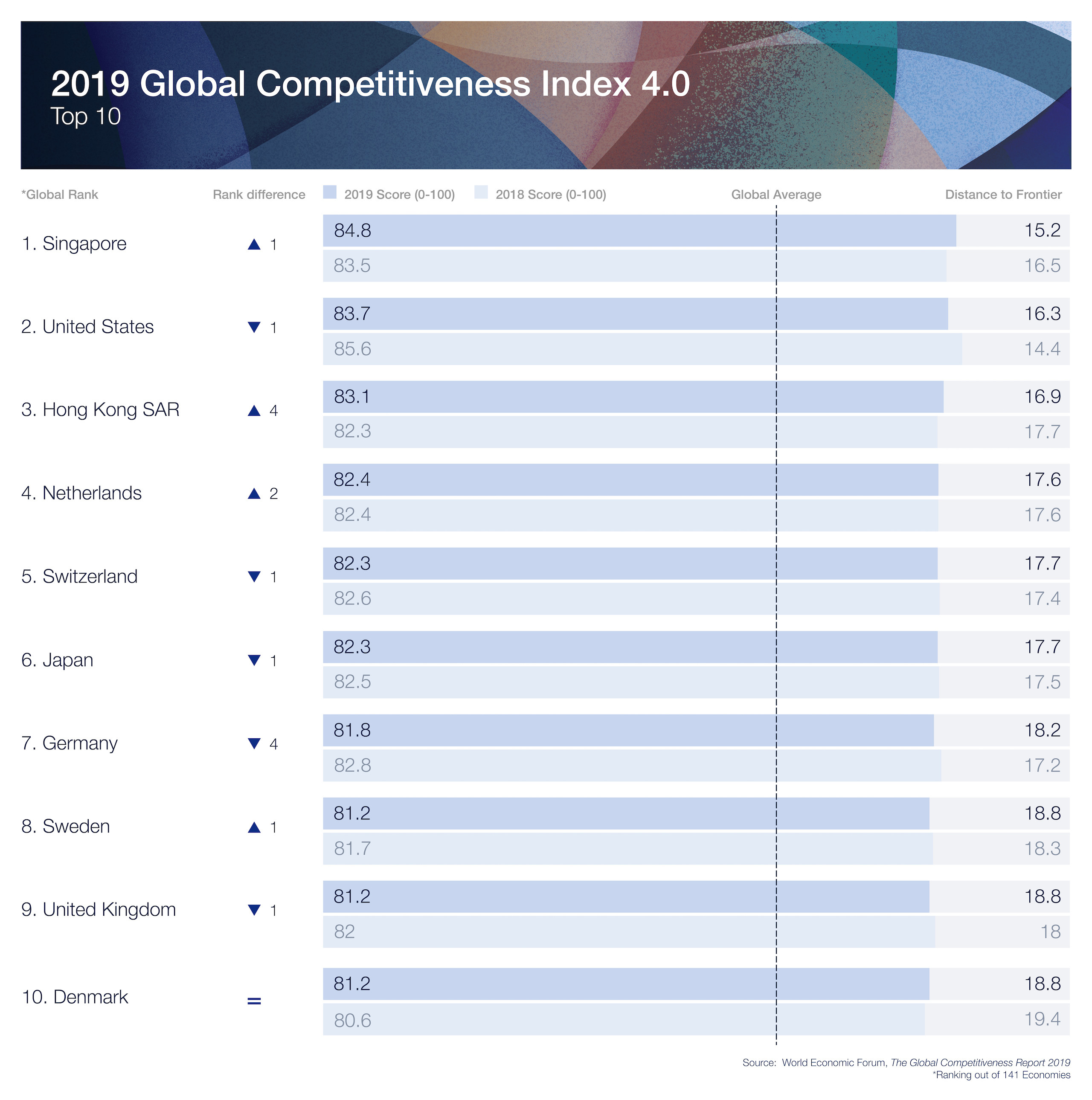Singapore crowned world's most open and competitive economy
Singapore is the new leading world economy in terms of competitiveness, with 85/100 points.
Image: Duy Nguyen/Unsplash
Stay up to date:
Infrastructure
Singapore has been crowned the most open and most competitive economy in the world. But what does that mean? And how can other countries mimic its success?
In the World Economic Forum’s latest Global Competitiveness Report, Singapore scored 85 points out of a possible 100, placing it above the US, Hong Kong, the Netherlands and Switzerland in the top five. It was awarded more than 90 points in four of the 12 gauges used to rank the 141 countries and scored more than the OECD average in all areas.
“It's the result of a very balanced and strong performance across the pillars,” says Thierry Geiger, Head of Analytics and Quantitative Research, Global Competitiveness and Risks at the World Economic Forum. “They are very close to the ideal state in areas including infrastructure and health.”
What do we mean by ‘competitiveness’?
By analyzing more than 100 indicators of competitiveness, the Forum’s work aims to unveil the secrets of the strongest performers and showcase what they’re doing well, encouraging other policy-makers to learn from their peers.
Infrastructure was an area of excellence, with Singapore’s roads, ports and airports placing it top. And it came first for health, with the average person expected to enjoy 74 years of healthy life.
It scores well for financial stability and also for the quality of its public institutions, which come second only to Finland’s.
Even so, there’s some room for improvement – and in particular scope for Singapore to become an innovation hub, improving its business dynamism and developing skills like critical thinking to prepare its workforce for the world of tomorrow. Its lowest scores came for market size and for skills.
Geiger also highlighted freedom of the press as an area for improvement, and he notes that Singapore is a relatively small city-state, which might make reproducing its successes challenging. Even so, there are learnings for other economies looking to climb the ranks.
“Singapore is extremely, extremely well governed,” he says. “Corruption is very low, the public sector is extremely efficient, and the government has a long-term vision, and an ability to change. These are some of the things that could inspire others.”
Don't miss any update on this topic
Create a free account and access your personalized content collection with our latest publications and analyses.
License and Republishing
World Economic Forum articles may be republished in accordance with the Creative Commons Attribution-NonCommercial-NoDerivatives 4.0 International Public License, and in accordance with our Terms of Use.
The views expressed in this article are those of the author alone and not the World Economic Forum.
Forum Stories newsletter
Bringing you weekly curated insights and analysis on the global issues that matter.
More on Equity, Diversity and InclusionSee all
Claire Poole
June 24, 2025
Julia Hakspiel
June 17, 2025
Gayle Markovitz, Kate Whiting and Pooja Chhabria
June 12, 2025
Kim Piaget and Yanjun Guo
June 12, 2025






